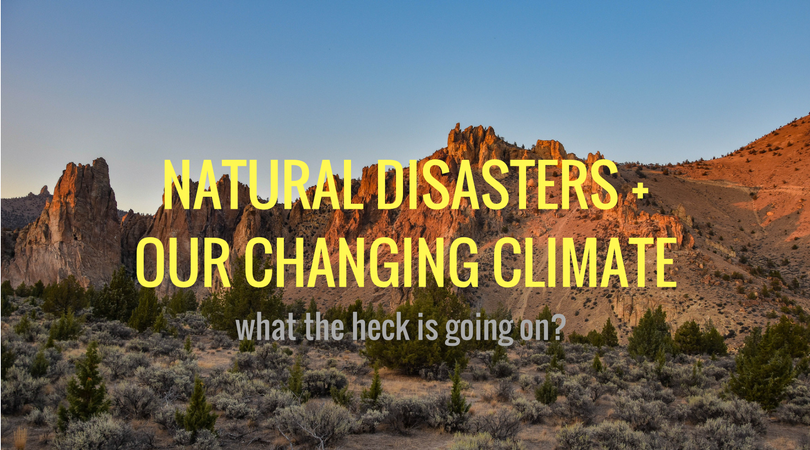The landfall of Hurricane Nate last weekend trails behind a summer of unprecedented storm intensities. Puerto Rico is still in shambles after Hurricanes Irma and Maria, and Caribbean nations like Antigua and Barbuda are completely clearedi. Having grown up in South Florida, I am no stranger to summer storms; hurricane season was a part of my childhood I actually really enjoyed, because it meant playing board games with my siblings and barbecuing while waiting for electricity to return. Storms are a totally natural part of our climate systems.
Why do we need to start talking about climate change, then?
This year especially, we are experiencing more intense storms than ever before. Warm oceans and low-pressure winds fuel tropical cyclones. As you’ve heard time and time again, humans are overloading the atmosphere with carbon, and that is warming our oceans. Climate change is absolutely not the sole contributor to this hurricane season’s destruction; it is a balance between anthropogenic causes and Earth’s usual cyclesii. Scientists are debating projections still as to how natural warming and cooling plays into the carbon threshold we’re approaching. There is no uncertainty, however, that our communities are increasingly at risk as our landscapes are changing quickly.
Tropical storms are not the only thing to watch out for. Let’s talk about the insane wildfires in the Pacific Northwest recently, or this month’s fires through California wine country. As temperatures steadily rise, the Great Basin will become more arid; the one-predictable wind patterns are becoming drier, which increased the likelihood of super intense firesiii. My new homebase of the American Southwest expects less rainfall than already-record low percipitation, as rising sea surface temperatures muddle the edges of the North American monsooniv. This also increases fire risk, plus the day-to-day challenges of shifting crop cycles and prolongued droughts. On the subject of percipitation, snowfall is likely going to decrease – less snow doesn’t necessarily mean more rain, though. Snowmelt is a hugely important source of water for American hubs like California’s Central Valley or mountain towns along the Rockiesv. Unpredictable winter percipitation could mean more flooding as streams are overflowed, or a few big storms rather than regular snowfall throughout the seasonvi.
Being educated is not about being fearful.
Hurricanes, fires, drought, snowstorms… yikes. Oftentimes, members of the public that climate change is occuring, but do not realize how it could possibly be impacting them. I encourage you to stay posted on news, views, and how your local community is specifically being effected by climate change. Do your part in little ways every day, like reducing your plastic consumption. Stay prepared, stay informed, stay hopeful.
★★★★★★★★★★★★★★★★★★★★★★★★
[i] ‘The Daily’ by The New York Times, Hurricanes, Humans and Climate Change, September 22, 2017. Listen here.
[ii] Rosen, Julia. “How an Ocean Climate Cycle Favored Harvey.” Science, American Association for the Advancement of Science, 1 Sept. 2017, science.sciencemag.org/content/357/6354/853.
[iii] Fountain, Henry. “California Winds Are Fueling Fires. It May Be Getting Worse.” The New York Times, The New York Times, 11 Oct. 2017, http://www.nytimes.com/2017/10/11/climate/caifornia-fires-wind.html
[iv] Fuller-Wright, Liz. “How Global Warming Is Drying up the North American Monsoon.” Princeton University, The Trustees of Princeton University, 11 Oct. 2017, http://www.princeton.edu/news/2017/10/11/how-global-warming-drying-north-american-monsoon.
[v] Howard, Brian Clark. “6 Places Where Melting Snow Means Less Drinking Water.” National Geographic, National Geographic Society, 12 Nov. 2015, news.nationalgeographic.com/2015/11/151112-river-basins-water-drought-snowpack-snowfall-climate-change-science/.
[vi] Berghuijs, W. R., et al. “A Precipitation Shift from Snow towards Rain Leads to a Decrease in Streamflow.” Nature News, Nature Publishing Group, 18 May 2014, http://www.nature.com/articles/nclimate2246.

